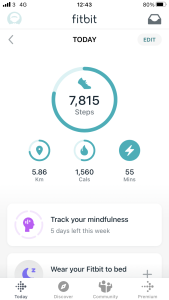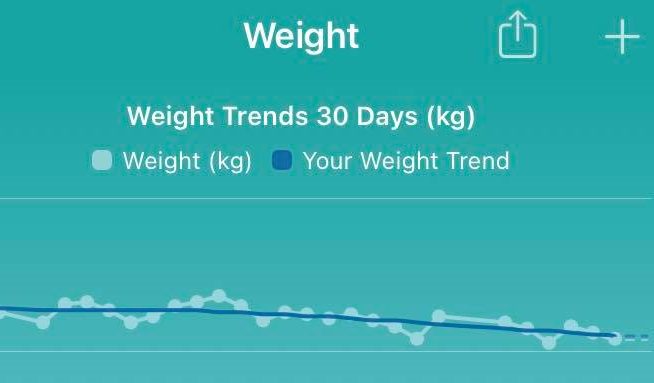February is a great time to start getting yourself into shape. The slightly longer days and the first flowers shooting up give us hope that we will soon be enjoying warm sunny days walking. Here we share some ideas about how to prepare.

Set a Goal
For many, getting ready may require some weight loss. Being at your optimal weight by the time you walk will yield dividends. You’ll feel better. You’ll enjoy it more. And you risk fewer injuries. So what’s your optimal weight? The NHS provides a simple online tool to calculate this. but be warned. Their suggested weights seem very low!
A smart goal needs to be time-bound as well as realistic. There’s no point in trying to lose 10kgs in a month. But, if you give yourself enough time, you can easily lose 5-10 kgs in 2-3 months. So start early.
And the formula to lose weight is simple: all you need to do is make sure that calories out exceed calories in.
Calories Out
Nowadays it’s easy to know how many calories you’ve burned. All you need is a “heart-rate monitor” such as Fitbit. Simple exercises such as yoga, walking or cycling will increase calories burned. Fitbit will also track steps so aim initially for 10,000 per day and keep building up. Tracking your steps will motivate you to walk more, such as parking the car in the furthest part of the car park from the grocery store; or walking up and down the platform whilst waiting for a train.

Calories In
Unfortunately there’s no simple way to record this. Which is a shame as, for many, it’s the harder side of the equation to achieve. So here are a few quite easy tips to help reduce calories in:
More veg less carbs. Just a slight change in the mix of your food can pay dividends.
Eat slower. We become full based on time as well as quantity of food. So if we eat slower we will fill up with less intake. Try using a smaller fork. Or cook potatoes for less time so they become harder to chew. And drink water during your meal.
Avoid snacks. Drink water or have a fruit instead.

Monitor the Results
To check if it’s working, weigh yourself every day – always at the same time, preferably in the morning. Enter the weight into your app. The result should pay off. Don’t panic if you’re up one day. 60% of your weight is water and this varies depending on what else is in your body. Alcohol and salt both cause you to carry more water.
If there’s no long-term effect effect then you’ll have to increase your output or reduce your input. It’s that simple.

And finally…don’t fall into the trap of saying to yourself “it doesn’t matter, I’ll lose weight during my walk”. You don’t want to be calorie counting whilst walking. That’s dangerous. You will need those calories for energy; and you will need protein to repair those damaged muscles which aches and pains are a symptom of.

Ready to book?
| Cookie | Duration | Description |
|---|---|---|
| cookielawinfo-checkbox-analytics | 11 months | This cookie is set by GDPR Cookie Consent plugin. The cookie is used to store the user consent for the cookies in the category "Analytics". |
| cookielawinfo-checkbox-functional | 11 months | The cookie is set by GDPR cookie consent to record the user consent for the cookies in the category "Functional". |
| cookielawinfo-checkbox-necessary | 11 months | This cookie is set by GDPR Cookie Consent plugin. The cookies is used to store the user consent for the cookies in the category "Necessary". |
| cookielawinfo-checkbox-others | 11 months | This cookie is set by GDPR Cookie Consent plugin. The cookie is used to store the user consent for the cookies in the category "Other. |
| cookielawinfo-checkbox-performance | 11 months | This cookie is set by GDPR Cookie Consent plugin. The cookie is used to store the user consent for the cookies in the category "Performance". |
| viewed_cookie_policy | 11 months | The cookie is set by the GDPR Cookie Consent plugin and is used to store whether or not user has consented to the use of cookies. It does not store any personal data. |